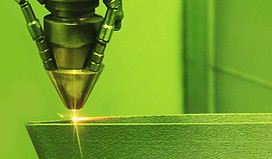
Driven by possibilities, united by a common goal of empowering our customers, our communities, and each other, our impact extends far beyond the drawing board.
We are disrupters. We are innovators.
We are creators. We are PTC.

Our Purpose: Power To Create
Power To Create is a commitment to our customers to help them solve their most difficult challenges.
Power To Create is a commitment to our employees to build a culture that supports diversity, equity, and inclusion so they can achieve their greatest potential.
Power To Create is a commitment to support the communities our employees live and work in globally through monetary and in-kind investments and our dedication to sustainability.
Power To Create is PTC.
Our Values
PTC
for All
We value and respect all identities, cultures, and perspectives.
Brains, Passion & Fun
We are curious lifelong learners. We love what we do and have fun doing it.
Excellence & Innovation
We celebrate ingenuity, are empowered to
share our thoughts, and bring our ideas to the forefront to be heard.
Boldness & Agility
We believe in taking calculated risks, failing fast, and recovering quickly.
Customer
First
We are committed to our customers’ ongoing success—and partner with them to deliver quality products and solutions that address their needs.
What We Do:
Driving Digital Transformation
PTC enables global manufacturers to realize double-digit impact
with software solutions that enable them to accelerate product and service innovation, improve operational efficiency, and increase workforce productivity.
In combination with an extensive partner network, PTC provides
customers flexibility in how its technology can be deployed to
drive digital transformation—on premises, in the cloud, or via its
pure SaaS platform. At PTC, we don’t just imagine a better world,
we help create it.
Benefits of additive manufacturing
With Creo additive manufacturing, you can develop innovative designs, optimize, and print to a variety of printers with ease, all within Creo. With no more time-consuming, error-ridden hassle of multiple software packages, you can reduce time-to-market and expense with rapid prototyping and enable part consolidation.
Creo additive manufacturing extensions feature enhanced lattice capabilities with the Delaunay stochastic algorithm and hard-edge definition, enabling lattice modeling, print tray optimization, and metal printing with support structures.
Innovate faster
AM enables you to create designs that could not be produced using traditional manufacturing processes.
Optimize design performance with lattice features, generative design, and simulation.
Improve time to market
Design, optimize, and print all within the Creo design environment, avoiding the time-consuming, error-ridden hassle of multiple software packages.
Easily design and print your part designs, with interference check, print tray setup, and nesting optimization.
Reduce expense
Save assembly costs by consolidating multiple parts into one. Minimize material usage with lattice capabilities.
Leverage AM for rapid prototyping, manufacturing fixtures, production parts, and service parts.
Additive manufacturing
print technologies
There are several fundamental printer technologies, each optimized for specific materials and desired outcomes. Fortunately, Creo makes it easy to 3D print to a wide variety of brands and types of printers.

Powder bed fusion
Thermal energy from an electron laser beam fuses layers from a powdered material bed.
For both polymers and metals, power bed fusion (PBF) is ideal for precise, functional parts.

Photopolymerization
Layers of liquid polymer are cured by a light or heat source.
This process produces a high-quality surface finish, ideal for prototypes.

Material extrusion
Material filament is extruded through a nozzle and deposited in layers.
This produces inexpensive physical models using polymer, metal, and composite materials.

Direct energy deposition
Metal is melted, deposited, and fused in place.
This print technology is perfect for large metal products.

Binder jetting
A bonding agent joins thin layers of powdered materials.
Metal and composite materials can be used to produce low-cost, high-volume parts.

Design for additive manufacturing
AM is not a stand-in for traditional manufacturing methods. It’s a new way of looking at product design.
Design for additive manufacturing (DfAM) leverages the transformational power of AM to provide engineers and designers with the tools needed to achieve highly complex
designs that break the barriers set by traditional manufacturing.

Innovate faster with Creo additive manufacturing
See what’s possible when you design for additive manufacturing. Only Creo gives you the power and flexibility you need to design, optimize, validate, and run a print check all in one environment.
Watch this webinar and learn how to close the gap between 3D CAD and design for additive manufacturing.
Additive manufacturing resources






